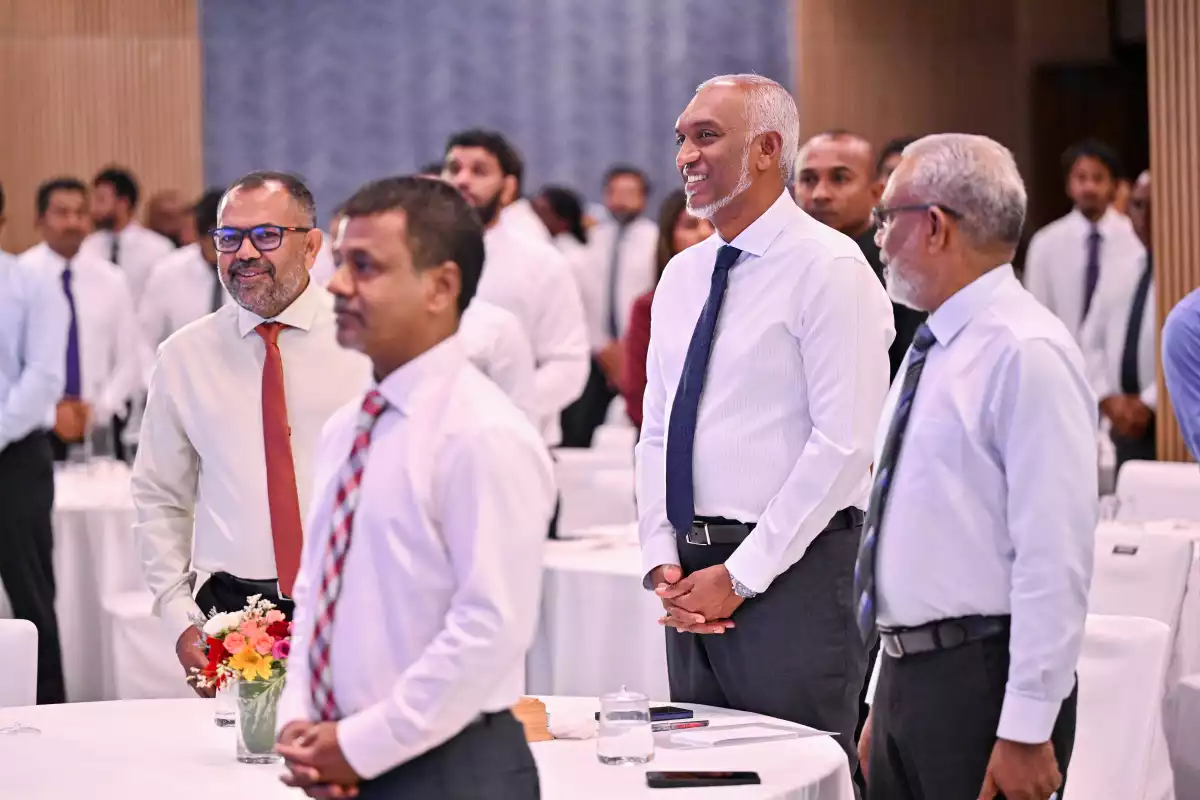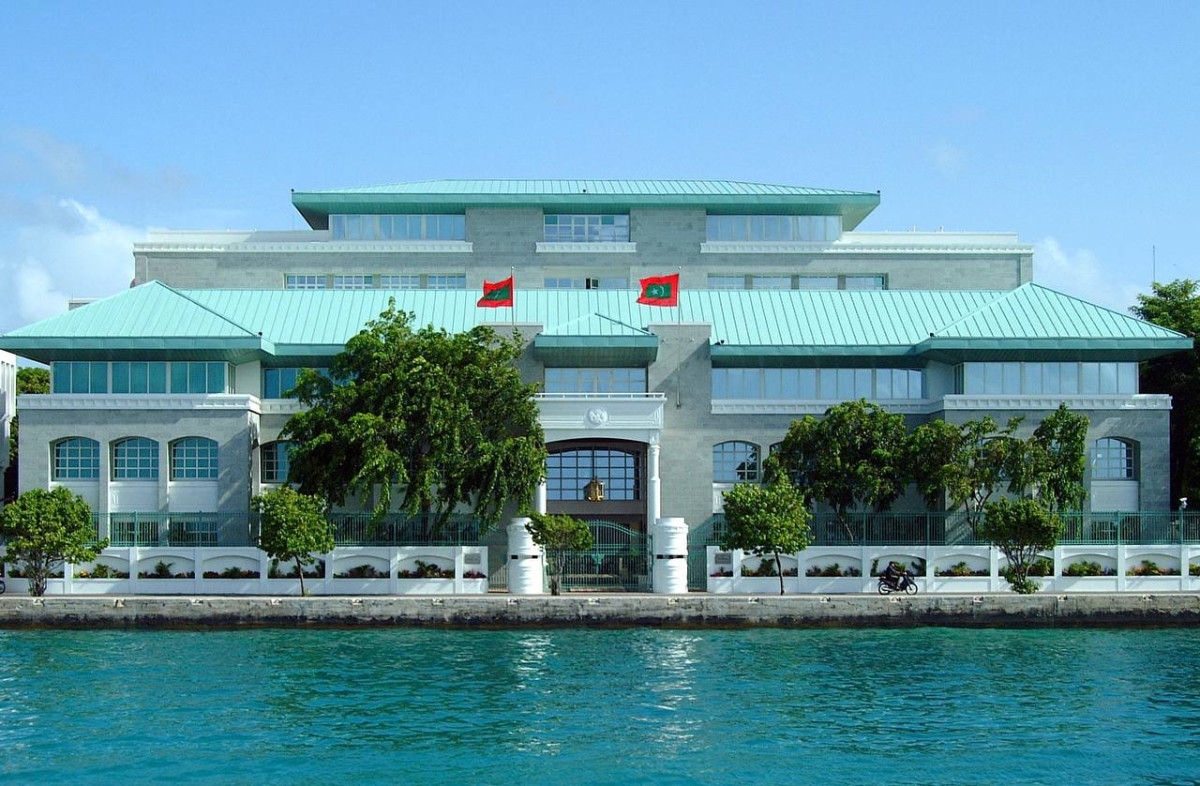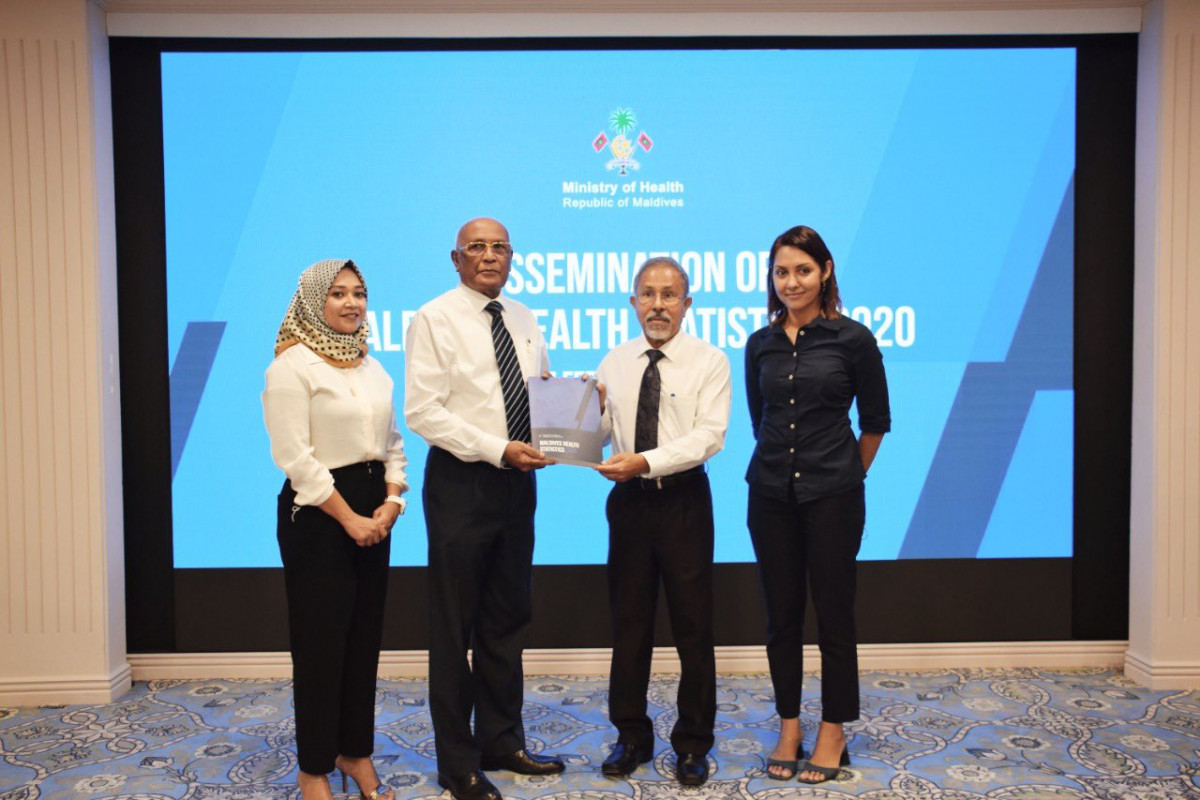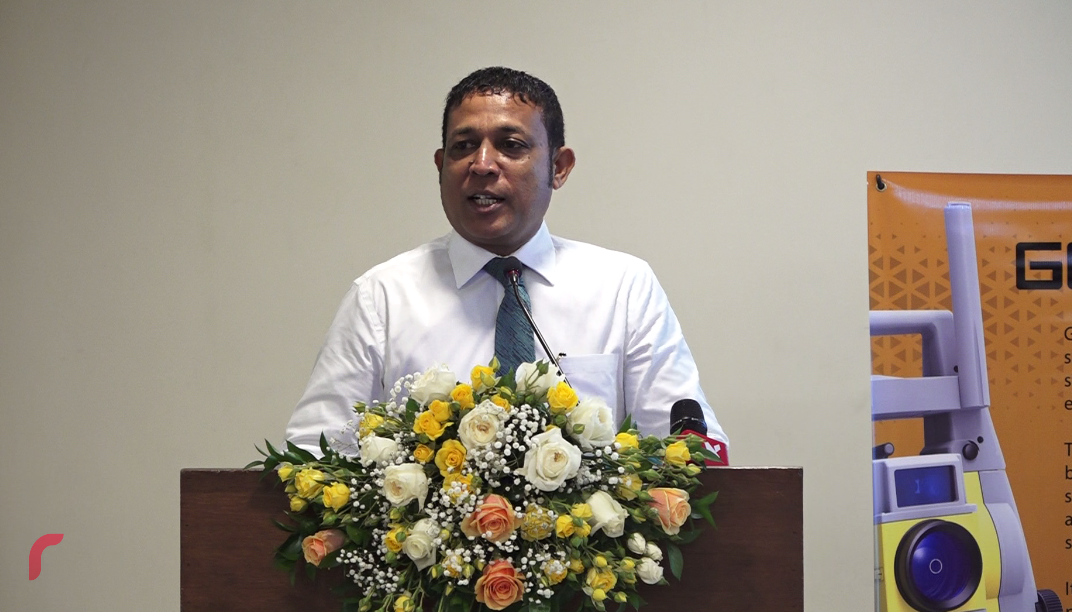Cabinet members could face investigation over alleged corruption in project awards: Zariyand
The government amended Public Finance Regulations four times to allow Cabinet to directly assign projects without competitive bidding, removing contractor evaluation mechanisms and safeguards


As part of the ceremony where development projects were awarded to private contractors without bidding
Financial expert Ismail Zariyand has alleged that the Muizzu administration’s allocation of major state projects to favored parties constitutes clear corruption, warning that every member of the Cabinet of Ministers could eventually face investigation for their role in the matter.
Zariyand argued that the government’s practice of awarding multimillion-Rufiyaa projects without transparent bidding and at inflated prices, reflects deliberate misconduct aimed at enriching selected companies at the expense of the state. He stated that projects have been granted to parties with political connections rather than to contractors offering the best value, technical expertise, or proven capacity, resulting in foreseeable financial losses to public funds.
He also noted that the government has amended the Public Finance Regulations four times between December 2023 and October 2025, modifying Article 10.22 to grant the Cabinet the authority to directly assign projects without a competitive bidding process. He said that these changes have effectively removed mechanisms for evaluating the experience and credibility of contractors and eliminated safeguards such as performance guarantees to protect the state if projects are abandoned.
Zariyand described the continued requirement for the state to provide an advance payment of 15 percent of the project’s total value as deeply concerning, particularly when many of these projects are being handed to companies with questionable financial standing.
Among the companies awarded contracts on 6 November 2025, Zariyand highlighted several red flags: some were classified as small and medium enterprises with annual profits below MVR three million but received projects worth up to MVR 150 million; others were “inactive” companies undergoing legal dissolution in the past two years, firms not listed in the Housing Ministry’s contractor registry, and companies with no prior record of similar work. In several instances, multiple awardees reportedly shared the same shareholders.
These patterns, Zariyand asserted, amount to clear evidence that the allocation of projects was engineered to benefit specific individuals and entities rather than serve the public interest. He added that if these projects eventually fail to meet contractual obligations and cause financial loss, every sitting Cabinet member should be held individually accountable and subjected to corruption investigations.





